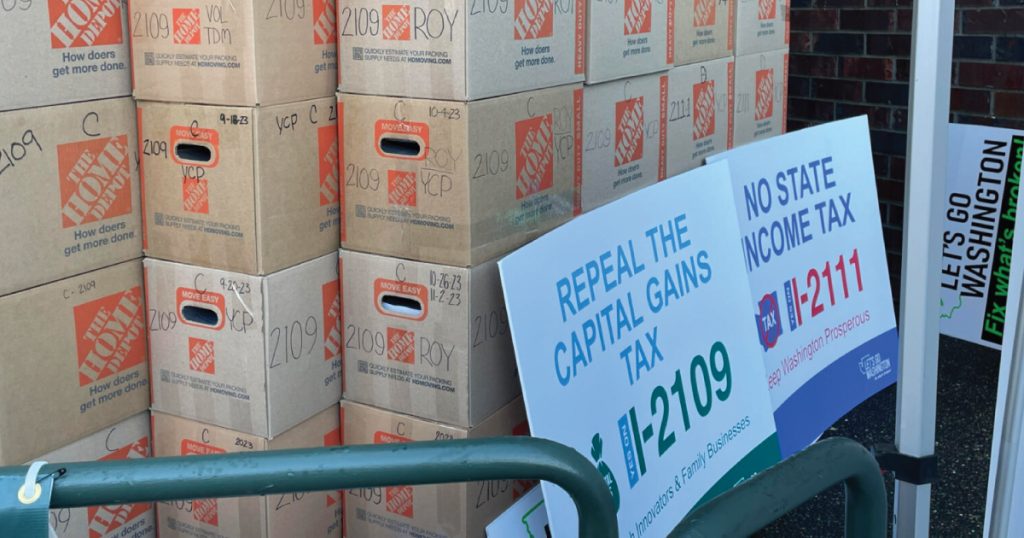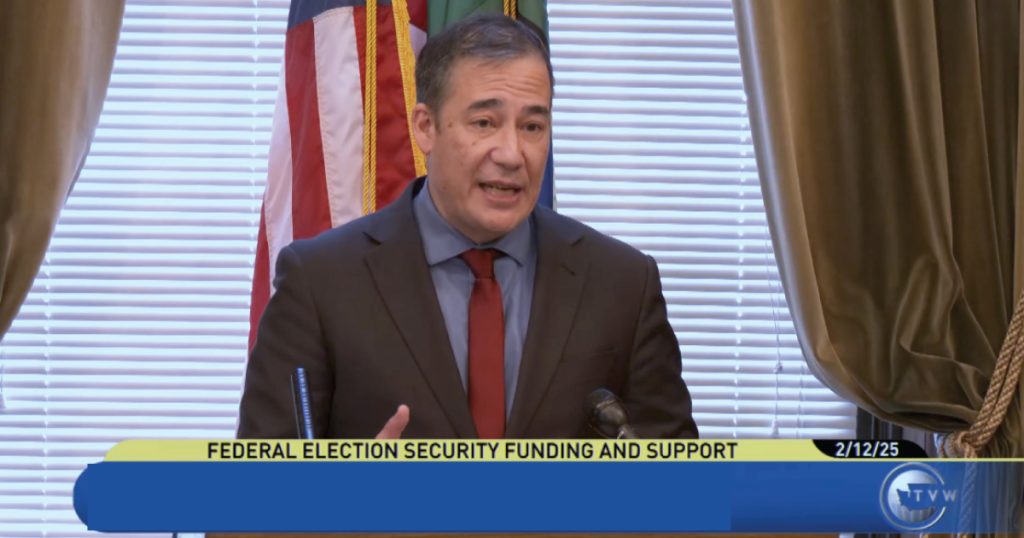OLYMPIA—A push by Democratic state senators for greater scrutiny of those circulating and signing initiative petitions advanced in the Washington Legislature on Tuesday over the objections of Republicans and the secretary of state.

Opponents of the legislation argue it would impede voters’ ability to engage in the initiative process, which allows citizens to propose changes in law on the ballot or to the Legislature.
The bill would require those gathering initiative signatures to sign a declaration under penalty of false swearing that information written by signers is accurate and they were not paid for their signature.
Senate Bill 5382 also directs the secretary of state, in validating signatures, to verify the address listed by a person on an initiative or referendum petition is the same as the one that is on their voter registration card.
It passed the Senate State Government, Tribal Affairs and Elections Committee on a party-line 5-4 vote.
Sen. Javier Valdez, D-Seattle, chair of the committee and the bill’s prime sponsor, said it will bolster accountability and reduce the potential for bad actors to improperly influence the initiative process. Amendments approved Tuesday, he said, will bring Washington in line with California and Idaho in the declarations it requires signature-gatherers to sign.
Clash over the bill
Republican lawmakers said the bill is a reaction to the seven citizen initiatives challenging Democratic policies that qualified for the ballot last year. The Legislature adopted three while voters rejected three and approved one.
“It’s absolutely chilling,” said Sen. Shelly Short, R-Addy, a member of the Senate committee. “I think it’s a really sad day when we start taking away the ability of those who disagree with us and make it harder for them to initiate something to do about it.”
Brian Heywood, founder of Let’s Go Washington, which led signature-gathering for the seven measures, blasted the bill’s approval.
“The legislature is showing what they really think about 3 million voters engaging in citizen advocacy,” he said in a statement. “This bill is politically motivated to solidify the power of the majority and silence anyone who questions their authority.
Secretary of State Steve Hobbs, a Democrat, added his voice to the opposition on Tuesday.
In a statement, he said anything that adds barriers or impediments to the initiative process “is not helpful to Washingtonians.”

“Adding a voter’s residential address to the process of validating voters’ eligibility to sign an initiative petition is unnecessary and won’t help voters in any demonstrative way,” Hobbs said.
Senate Majority Leader Jamie Pedersen, D-Seattle, said changes envisioned in the bill won’t disenfranchise “people from expressing their views.”
He said the state has a rigorous process for verifying a registered voter is the one who actually casts a ballot. That isn’t the case with determining the validity of hundreds of thousands of signatures submitted on petitions by people paid to collect them.
“What could possibly go wrong when you’re paying people dollars per signature to bring them in,” he said. “I think this would provide not the same level of accountability that we have generally in the election system, but at least a step up to be sure.”
Senate Minority Leader John Braun, R-Centralia, and House Minority Leader Drew Stokesbary, R-Auburn, railed against the bill at their weekly meeting with reporters on Tuesday.
“This is a bill we refer to as the ‘initiative-killer’,” Braun said. “It’s not clear this bill is even constitutional.”
The state Supreme Court’s view
The secretary of state is responsible for verifying and canvassing the names of registered voters who have signed an initiative or referendum petition. It uses statistical sampling to determine if enough signatures are submitted to qualify a measure for the ballot.
In August, the state Supreme Court rebuffed a bid by an alliance of unions and progressive groups to force the secretary of state to redo its certification of last year’s measures by reconfirming that the hundreds of thousands of people who signed petitions were legal voters.
But justices left the door open for lawmakers or the secretary of state to amend the process and in a unanimous ruling in October said the state constitution “does not require any particular signature verification procedure.”
“Whether more thorough procedures including checking of addresses should be required is a question for the legislature by statute or the secretary by rule,” then Chief Justice Steven Gonzalez wrote.
The court rejected two related challenges that could have kept the four initiatives from getting on the November ballot. Those measures sought to repeal the state’s capital gains tax, end its cap-and-trade program, make participation in a state-run, long-term care program optional and bar restrictions on natural gas in new construction. All but the gas measure were defeated
What’s next?
Valdez’s bill faces a difficult path from here.
Because it will cost an estimated $1.2 million in the next budget, it must be considered and passed by the Senate Ways and Means Committee. With a projected $6 billion shortfall in the next budget, there may not be an appetite for this new expense.
Pedersen said it is not “a major caucus priority.”
“But then we’ll pass several hundred bills that are not major caucus priorities,” he said. “So, I’ll look forward to the discussion in our caucus about that.
SOURCE: This article was authored by Jerry Cornfield of the Washington State Standard part of States Newsroom, a nonprofit news network supported by grants and a coalition of donors as a 501c(3) public charity.
Author: Jerry Cornfield












